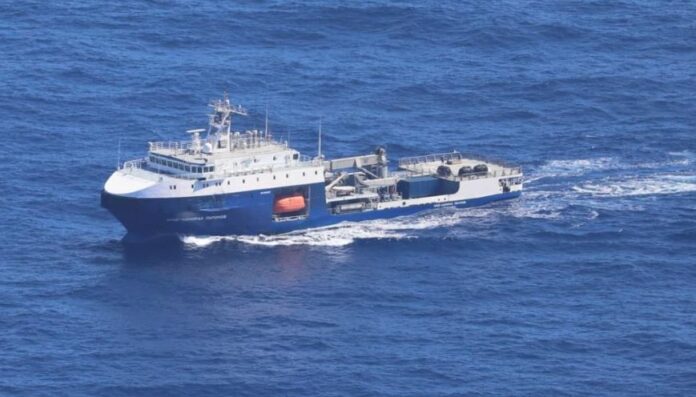The UK government has ramped up efforts to disrupt Russia’s illicit oil trade, imposing sanctions on 10 tankers believed to be central to Moscow’s “shadow fleet.” These vessels are suspected of transporting Russian gas and oil products, providing a critical revenue stream for the Kremlin to fund its ongoing war in Ukraine.
Foreign Secretary David Lammy, en route to Kyiv for talks with Ukrainian officials, stated: “Putin’s war machine is being bankrolled by an illicit and clandestine economic network. These sanctions strike at the heart of Russia’s ability to trade oil through its shadow fleet. The international community remains steadfast in standing with Ukraine, and we will not tolerate these efforts to bypass sanctions.”
“Today’s sanctions further disrupt Russia’s ability to trade oil through its shadow fleet.— UK Foreign Minister David Lammy
Russia has relied heavily on its fleet of aging, often unseaworthy tankers to export oil, a revenue source that accounted for about 25% of the country’s budget in 2023. Since the full-scale invasion of Ukraine in February 2022, the targeted ships, including the Nikolay Zuyev, NS Asia, and Zaliv Aniva, have collectively transported over $5 billion worth of Russian oil.

The sanctioned ships will now be barred from docking at UK ports and prohibited from accessing the UK ship register.
Russia’s shadow fleet has grown in response to Western sanctions, including the G7’s decision to cap oil prices at $60 per barrel and block insurance for ships selling oil above that threshold. While the shadow fleet has found ways to circumvent these restrictions, analysts believe a small number of vessels are key players in keeping the illicit trade going.
The UK claims that previous sanctions have already disrupted the operations of individual shadow ships, leaving many vessels stranded outside ports, unable to continue their trade in Russian oil.
Lammy added that the sanctions are part of a broader effort to make Russia’s reliance on this shadow fleet an “expensive misstep” for President Vladimir Putin, further eroding Moscow’s ability to finance its war.
Key Points:
- UK Sanctions on Russian Ships: The UK has sanctioned 10 ships from Russia’s shadow fleet involved in transporting oil and gas products to fund Moscow’s war in Ukraine.
- Targeting Oil Revenue: Oil exports are a major source of revenue for Russia, accounting for about 25% of the country’s budget in 2023, helping to finance the war effort.
- Aging Fleet: The shadow fleet consists of old, often unseaworthy tankers, which operate globally to transport Russian oil despite Western sanctions.
- Foreign Secretary’s Statement: UK Foreign Secretary David Lammy emphasized the importance of destabilizing Russia’s illicit oil trade, calling it a key part of Putin’s war machine.
- G7 Sanctions: Western powers, including the G7, have imposed a price cap on Russian oil at $60 per barrel and restricted insurance access to ships selling oil above this price. Russia’s shadow fleet has developed to circumvent these restrictions.
- High-Value Shipments: Three of the sanctioned vessels have transported more than $5 billion worth of Russian oil since the invasion of Ukraine began.
- Impact of Sanctions: The sanctioned vessels will be banned from UK ports and removed from the UK ship register. The UK claims that previous sanctions have already disrupted the operations of Russia’s shadow fleet, leaving many ships idling and unable to trade.



